15 Richest Counties in Georgia (2023): Georgia’s Economic Crown Jewels
Georgia’s 15 richest counties are more than just statistics; they are vibrant communities with rich histories and a commitment to continued prosperity. Learn how they’ve navigated the path to affluence in the heart of the South
In the diverse tapestry of richest counties in Georgia, economic prosperity and historical significance converge to create a landscape that has captivated residents and visitors alike for generations. Beyond the hustle and bustle of Atlanta, a myriad of counties across the state have carved their own unique paths to affluence. In this listicle, we embark on a journey through the 15 wealthiest counties in Georgia, each one revealing its distinct charm and financial prowess. From the tranquil shores of Bryan County to the thriving metropolis of Fulton County, we will uncover the stories behind these economic powerhouses, all while highlighting their current Median Household Income values.
The Rich History of Wealthy Counties
As we delve into the rich tapestry of these counties, we will embark on a historical journey, tracing their origins from their very foundations. These counties, with histories dating back to the 18th and 19th centuries, have seen their economies evolve from primarily agrarian to diverse and vibrant. In the early years, cotton farming and agriculture were the lifeblood of many, but as the 20th century dawned, transformations took place. The rise of manufacturing, suburbanization, and strategic infrastructure development have all played pivotal roles in shaping these counties into the thriving communities they are today. With each passing decade, they have adapted to the ever-changing economic landscape, preserving their unique histories while embracing the promise of a prosperous future.
Present-Day Economic Triumphs
As we move beyond the annals of history, we will delve into the contemporary economic achievements of these counties. With a keen focus on the present, we will explore how they have leveraged their strategic locations, invested in infrastructure, and diversified their industries to create fertile ground for economic success. The Median Household Income figures will serve as a testament to their accomplishments, offering concrete evidence of the affluence and financial stability they have achieved. But beyond the numbers, we will uncover the stories of communities that have struck a harmonious balance between economic progress and preserving their cultural heritage, natural beauty, and strong sense of community. These counties are not just statistics; they are thriving, dynamic, and inviting places where residents can experience the best of both worlds: financial prosperity and a high quality of life.
The Future: Prosperity and Promise
As we conclude our exploration of Georgia’s wealthiest counties, we will turn our gaze towards the horizon, where the future unfolds with promise and potential. These counties, with their diverse histories and thriving economies, are well-poised to continue their trajectory of growth and prosperity. By investing in sustainable development, education, and community enhancement, they are laying the foundation for a future where residents can achieve financial success while enjoying the unique attributes that make each county special. Whether it’s the lush landscapes of Oconee County, the urban vibrancy of Fulton County, or the suburban charm of Cherokee County, one thing is certain: Georgia’s wealthiest counties are poised for a future filled with continued affluence and a commitment to preserving the essence of what makes them truly remarkable.
15. Forsyth County
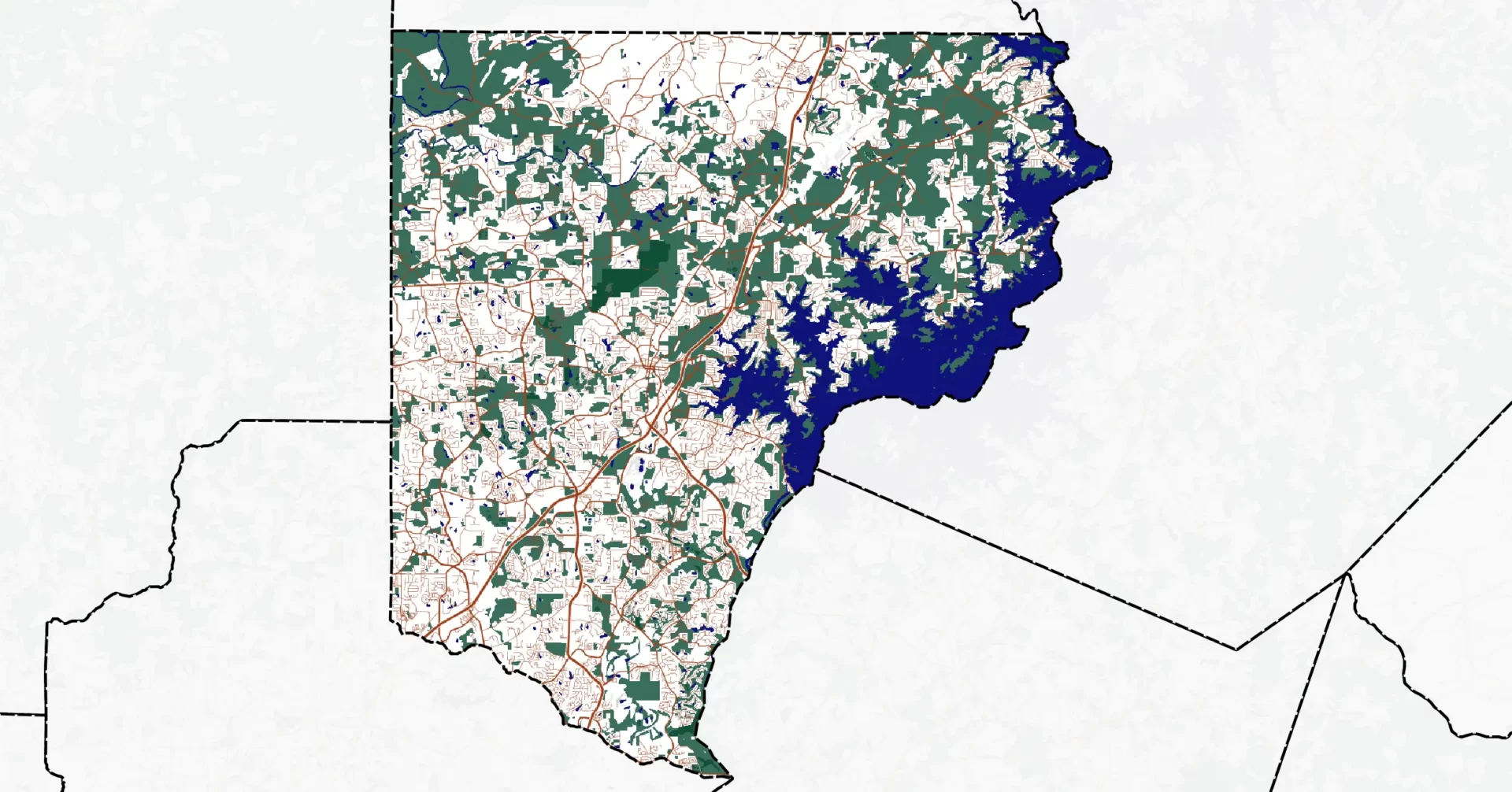
Median Household Income: $56,709
Historical Perspective: Forsyth County, once known for its agrarian roots and textile industry, has come a long way in terms of economic development. Established in 1832, the county was predominantly rural until the mid-20th century. However, it wasn’t until the late 1990s that Forsyth County began to experience significant growth, driven by its proximity to Atlanta. As a result, it has transformed into a suburban hotspot, with businesses and residents flocking to take advantage of its well-connected location.
Economic Development Today: Today, Forsyth County is a thriving part of the Atlanta metropolitan area, known for its exceptional school system and vibrant local economy. With a median household income of $56,709, it’s evident that this county offers ample opportunities for prosperity. Its economic development can be attributed to a diversification of industries, including technology, healthcare, and manufacturing. The county has strategically invested in infrastructure, making it an attractive destination for businesses and residents seeking a high quality of life within commuting distance of Atlanta.
Future Outlook: Forsyth County’s trajectory indicates continued growth and economic stability. As it adapts to the changing economic landscape, it remains committed to preserving its natural beauty while fostering an environment conducive to business growth. With a strong foundation in place, the future holds promise for Forsyth County as it seeks to maintain its status as a desirable and prosperous community.
14. Effingham County

Median Household Income: $56,903
Historical Perspective: Effingham County, named after Lord Effingham, a British champion of American rights in the 1760s, has a history intertwined with the development of Georgia itself. Established in 1777, it played a vital role during the American Revolutionary War. For much of its history, the county relied on agriculture, primarily cotton and rice, for economic sustenance. This changed in the mid-20th century when Effingham County, like many other counties in Georgia, experienced an industrial shift.
Economic Development Today: Today, Effingham County has evolved into a thriving suburban area with a median household income of $56,903. This transformation can be attributed to the county’s strategic location, well-planned infrastructure, and diversification of industries. Manufacturing and logistics have become key drivers of the local economy, thanks in part to its proximity to the Port of Savannah. The county’s commitment to education and quality of life has also attracted a growing number of residents and businesses.
Future Outlook: Effingham County’s future appears promising as it continues to capitalize on its strategic location and robust economic ecosystem. It aims to strike a balance between economic progress and preserving its historical and natural assets. Effingham County is well-poised to remain a dynamic and prosperous community, where residents can enjoy a high standard of living.
13. Lee County
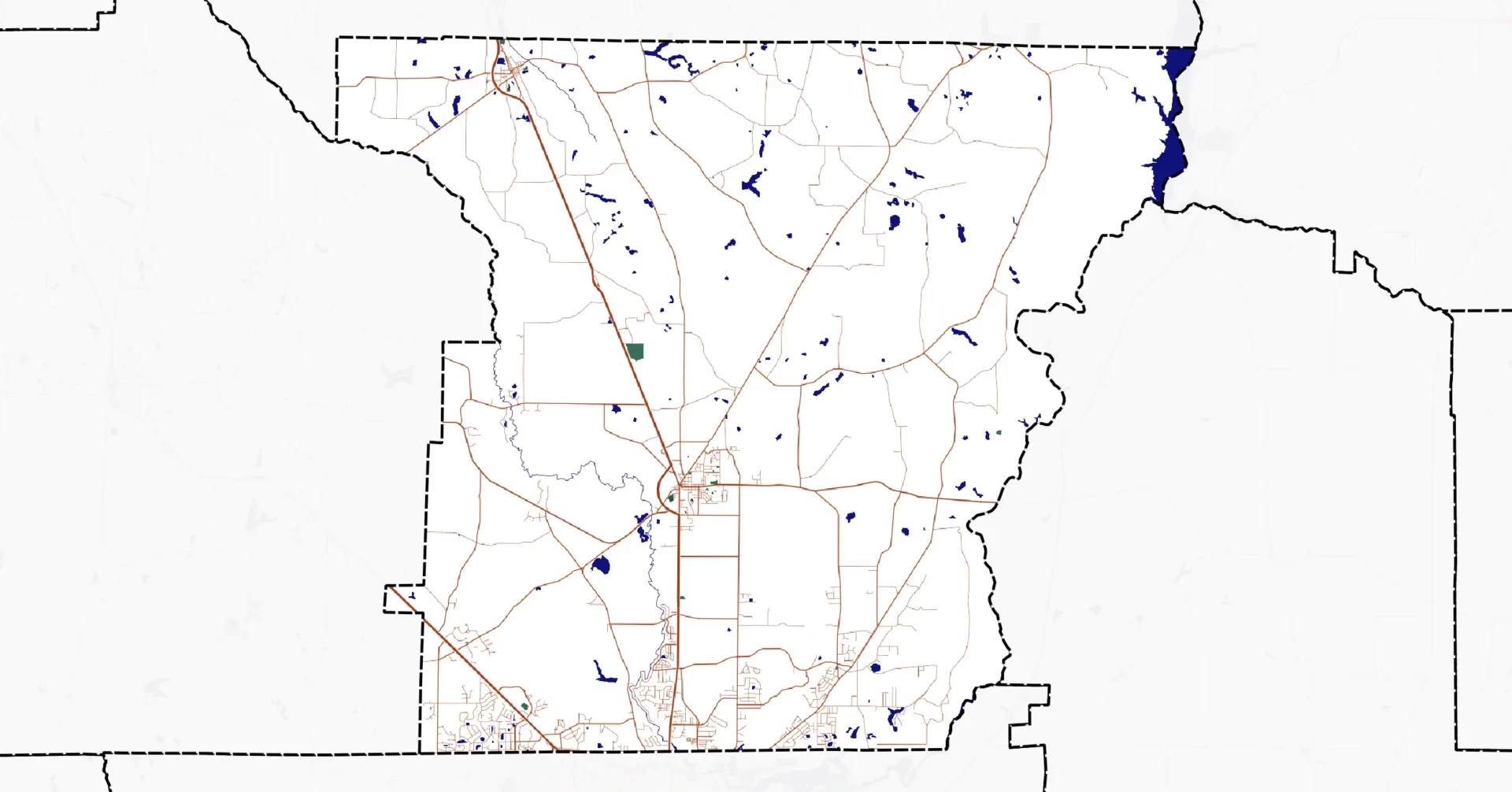
Median Household Income: $59,811
Historical Perspective: Lee County, established in 1826, has a rich history tied to agriculture and education. It was named in honor of General Robert E. Lee, known for his leadership during the American Civil War. For much of its early existence, the county’s economy was centered around cotton farming, which was the primary source of wealth. In the 20th century, the county began to diversify its economic base, moving away from agrarian dependence.
Economic Development Today: Lee County’s economic landscape has shifted significantly over the years. With a median household income of $59,811, it has evolved into a prosperous community that places a strong emphasis on education and technological innovation. The presence of industries such as healthcare, manufacturing, and logistics has contributed to its economic growth. Lee County’s commitment to providing quality education through its school system has attracted families seeking a well-rounded lifestyle.
Future Outlook: The future of Lee County looks promising as it continues to invest in education, technology, and infrastructure. As it adapts to the evolving economic landscape, the county strives to maintain its reputation as a place where residents can achieve financial success while enjoying a vibrant and supportive community. With a blend of history and modernity, Lee County is poised to embrace a prosperous future.
12. Coweta County
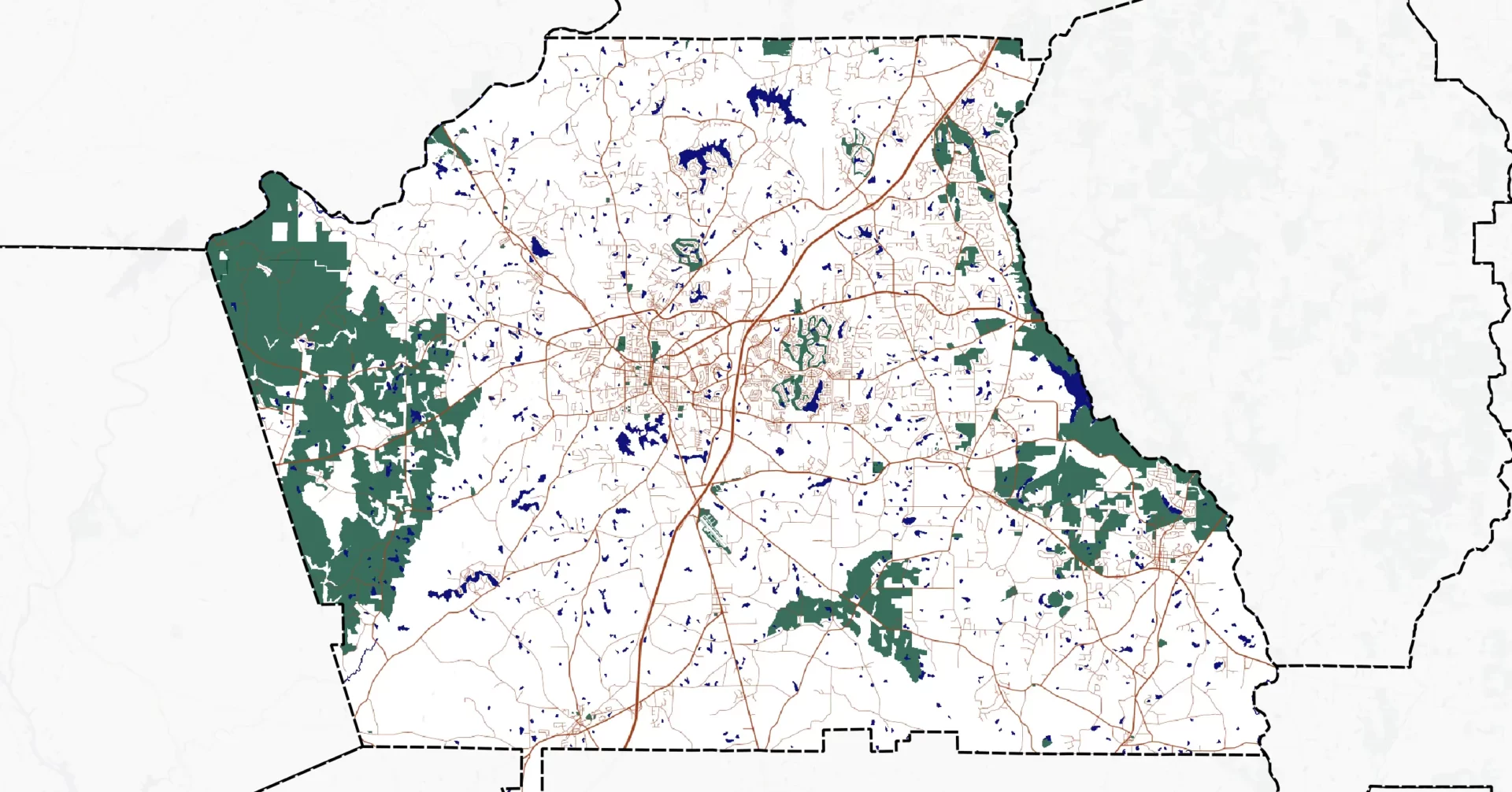
Median Household Income: $61,550
Historical Perspective: Coweta County, founded in 1826, has a rich history rooted in agriculture and commerce. It was named after the Coweta Indians who once inhabited the region. The county’s economy was historically driven by cotton farming, but it experienced a significant shift in the 20th century with the growth of manufacturing and commerce. Coweta County played a pivotal role in the development of Georgia’s textile industry.
Economic Development Today: Today, Coweta County stands as a testament to economic diversification, boasting a median household income of $61,550. The county’s strategic location, coupled with its well-maintained infrastructure, has made it an attractive destination for businesses and residents alike. Sectors such as healthcare, manufacturing, and retail have contributed to its economic prosperity. Coweta County’s commitment to preserving its cultural heritage while fostering economic growth has garnered attention from those seeking both financial success and a rich cultural experience.
Future Outlook: Coweta County’s future is bright, marked by continued growth and economic stability. The county aims to strike a balance between economic progress and preserving its historical and natural assets. As it adapts to the changing economic landscape, Coweta County is set to remain an appealing and prosperous community where residents can enjoy a high quality of life.
11. Paulding County
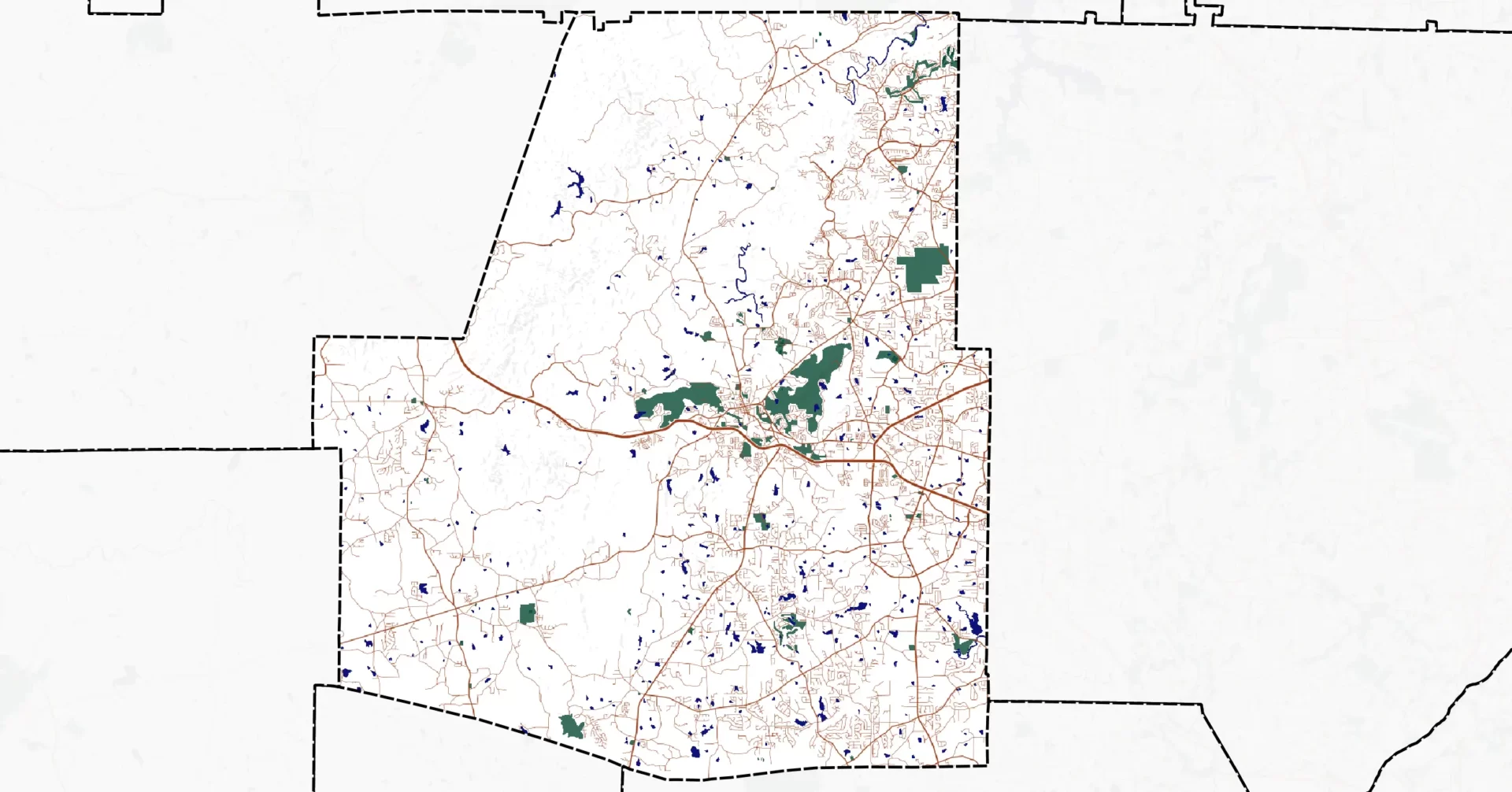
Median Household Income: $62,348
Historical Perspective: Paulding County, established in 1832, was named after John Paulding, a hero of the American Revolutionary War. Like many counties in Georgia, its early economy relied heavily on agriculture, particularly cotton farming. However, the county experienced a transformation in the mid-20th century with the advent of manufacturing and suburbanization.
Economic Development Today: Today, Paulding County has evolved into a vibrant suburban community with a median household income of $62,348. Its strategic location near Atlanta and investment in infrastructure have attracted a diverse range of industries, including healthcare, logistics, and technology. The county’s commitment to education and family-friendly living has drawn residents seeking both economic opportunities and a high quality of life.
Future Outlook: The future of Paulding County looks promising as it continues to focus on economic diversification and community development. The county strives to maintain its reputation as a place where residents can achieve financial success while enjoying a comfortable and supportive environment. With its blend of history and modernity, Paulding County is poised for a prosperous future.
10. Gwinnett County
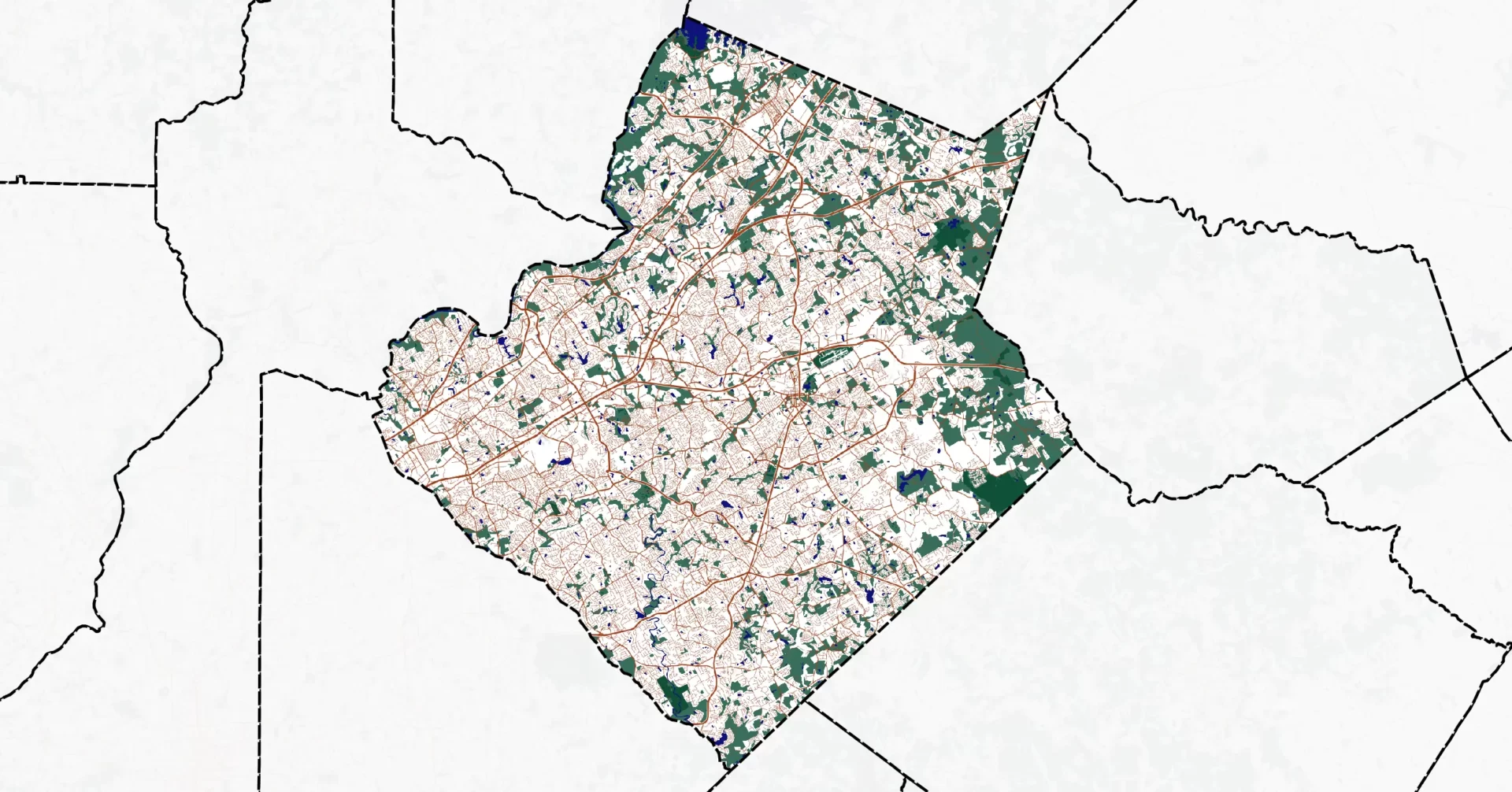
Median Household Income: $63,219
Historical Perspective: Gwinnett County, founded in 1818, has a storied history deeply rooted in agriculture and transportation. It was named after Button Gwinnett, one of the signers of the Declaration of Independence. Throughout much of its early history, cotton farming was the backbone of the local economy. However, the county’s fortunes changed dramatically in the mid-20th century with the growth of Atlanta and the development of key transportation infrastructure.
Economic Development Today: Today, Gwinnett County is a bustling urban and suburban center with a median household income of $63,219. Its proximity to Atlanta has transformed it into a major economic hub, with a diverse range of industries including technology, healthcare, and finance contributing to its economic prosperity. The county’s dedication to education, cultural diversity, and innovation has attracted residents and businesses alike.
Future Outlook: Gwinnett County’s future appears promising as it continues to adapt to the changing economic landscape. The county aims to strike a balance between economic progress and preserving its cultural and natural assets. Gwinnett County is well-poised to remain a dynamic and prosperous community where residents can enjoy both economic success and a rich quality of life.
9. Bryan County
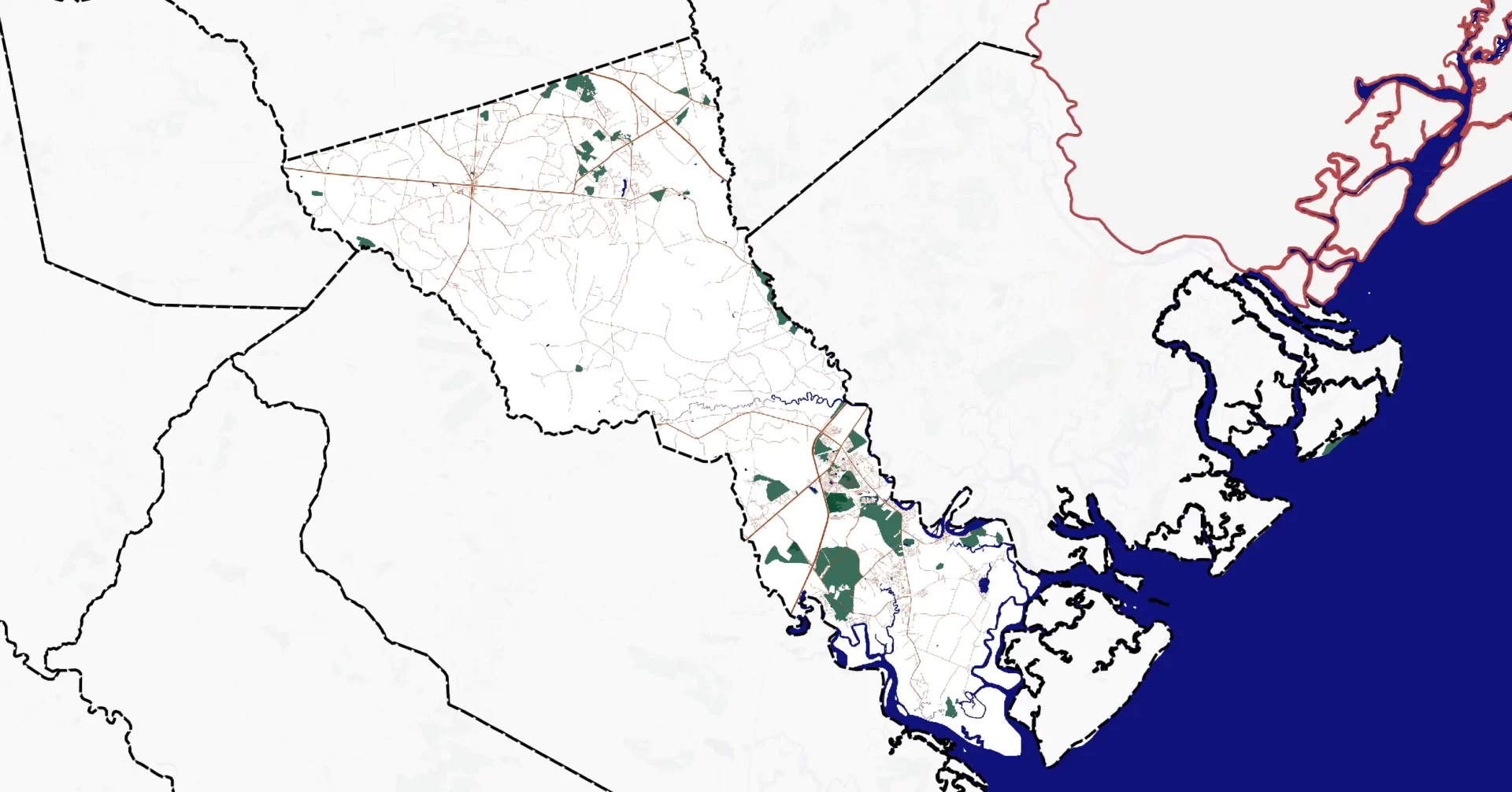
Median Household Income: $63,244
Historical Perspective: Bryan County, established in 1793, has a history intertwined with Georgia’s colonial past. Named after Jonathan Bryan, a prominent figure in the state’s early history, the county’s economy was rooted in agriculture, including rice and cotton farming. It played a role in Georgia’s maritime trade during the colonial era.
Economic Development Today: Today, Bryan County has evolved into a thriving community with a median household income of $63,244. Its strategic location along Georgia’s coast has contributed to the growth of industries such as manufacturing, logistics, and tourism. The county’s commitment to preserving its natural beauty and historical sites while fostering economic growth has attracted residents seeking a blend of prosperity and cultural heritage.
Future Outlook: The future of Bryan County looks bright as it continues to invest in infrastructure and sustainable development. The county aims to maintain its reputation as a place where residents can achieve financial success while enjoying the beauty of Georgia’s coastline and the richness of its history.
These counties’ histories and economic journeys showcase the diverse paths to prosperity within the state of Georgia. Each one has overcome unique challenges and embraced opportunities to become a thriving part of the state’s economic landscape.
8. Henry County
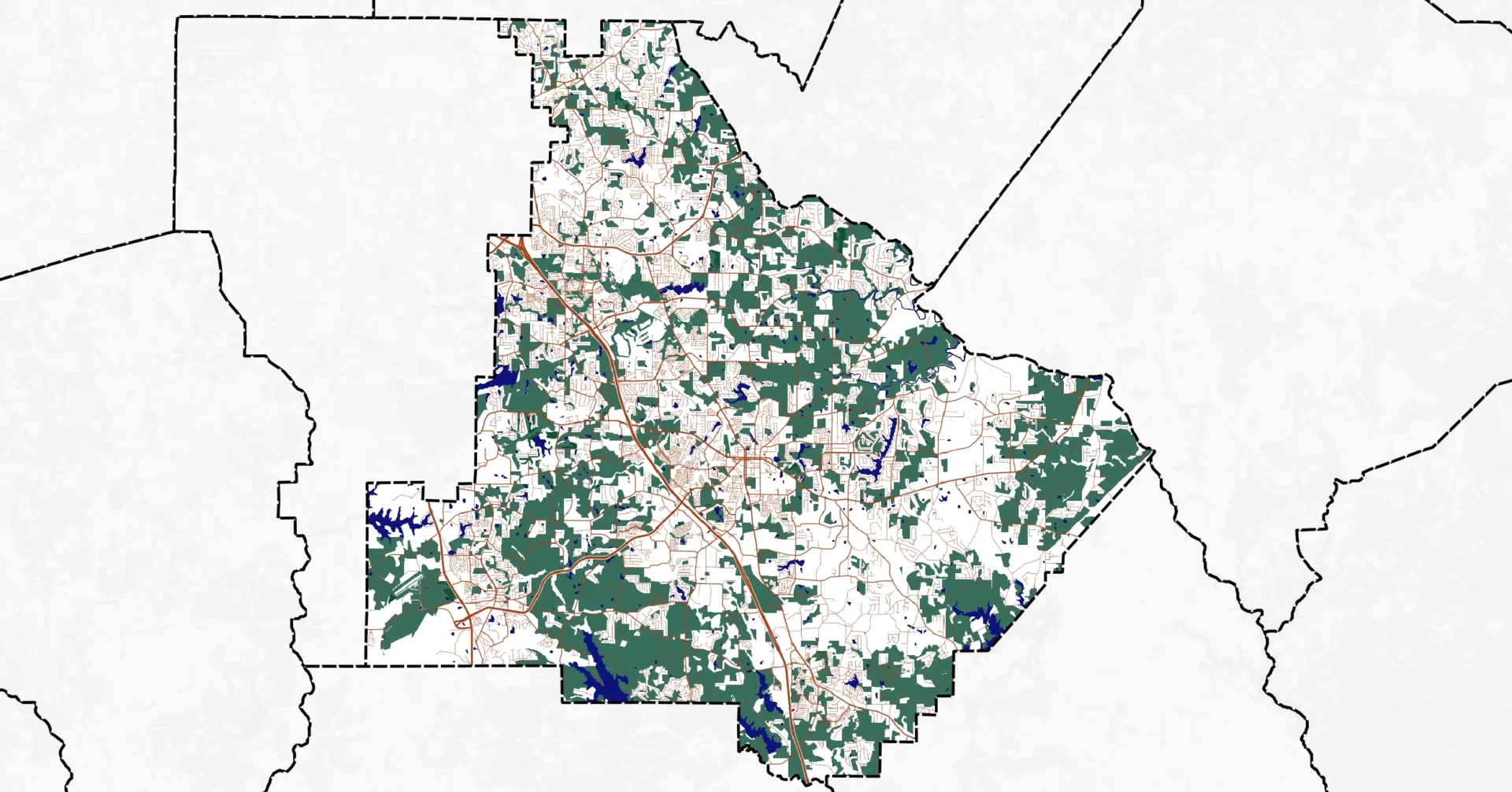
Median Household Income: $63,923
Historical Perspective: Henry County, established in 1821, was named after Patrick Henry, one of the Founding Fathers known for his “Give me liberty or give me death!” speech. In its early years, the county relied on agriculture, including cotton farming, as its economic backbone. However, as the Atlanta metropolitan area expanded in the late 20th century, Henry County experienced significant suburbanization.
Economic Development Today: Today, Henry County is a thriving suburban area with a median household income of $63,923. Its strategic location south of Atlanta and investment in infrastructure have attracted a diverse range of industries, including logistics, healthcare, and manufacturing. The county’s commitment to providing quality education, public services, and recreational opportunities has made it an appealing destination for residents seeking economic success and a high quality of life.
Future Outlook: Henry County’s future holds promise as it continues to focus on sustainable development and economic diversification. The county aims to maintain its reputation as a place where residents can achieve financial success while enjoying a comfortable and supportive environment. With a blend of history and modernity, Henry County is poised for a prosperous future.
7. Cobb County
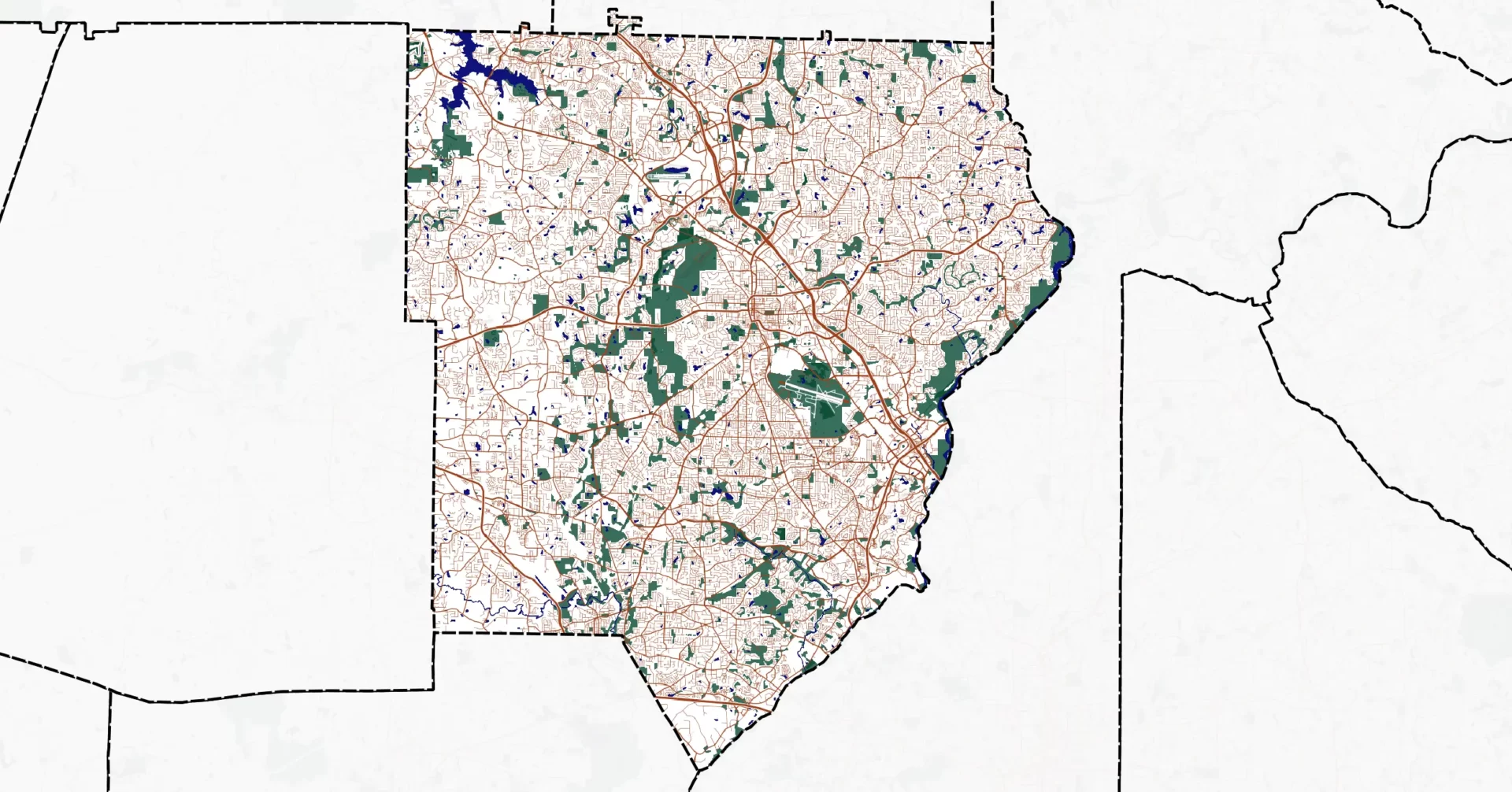
Median Household Income: $65,522
Historical Perspective: Cobb County, established in 1832, bears the name of Thomas Willis Cobb, a U.S. representative and senator from Georgia. Like many counties in the state, it relied heavily on agriculture, particularly cotton farming, in its early years. However, Cobb County’s economic landscape underwent a significant transformation with the expansion of Atlanta in the mid-20th century.
Economic Development Today: Today, Cobb County is a bustling urban and suburban center with a median household income of $65,522. Its proximity to Atlanta has made it a major economic and cultural hub, with a diverse range of industries including technology, healthcare, and finance contributing to its economic prosperity. The county’s commitment to education, public services, and recreational opportunities has attracted residents and businesses alike.
Future Outlook: Cobb County’s future appears bright as it continues to evolve and adapt to the changing economic landscape. The county aims to strike a balance between economic progress and preserving its cultural heritage and natural assets. Cobb County is well-poised to remain a dynamic and prosperous community where residents can enjoy both economic success and a rich quality of life.
6. Cherokee County
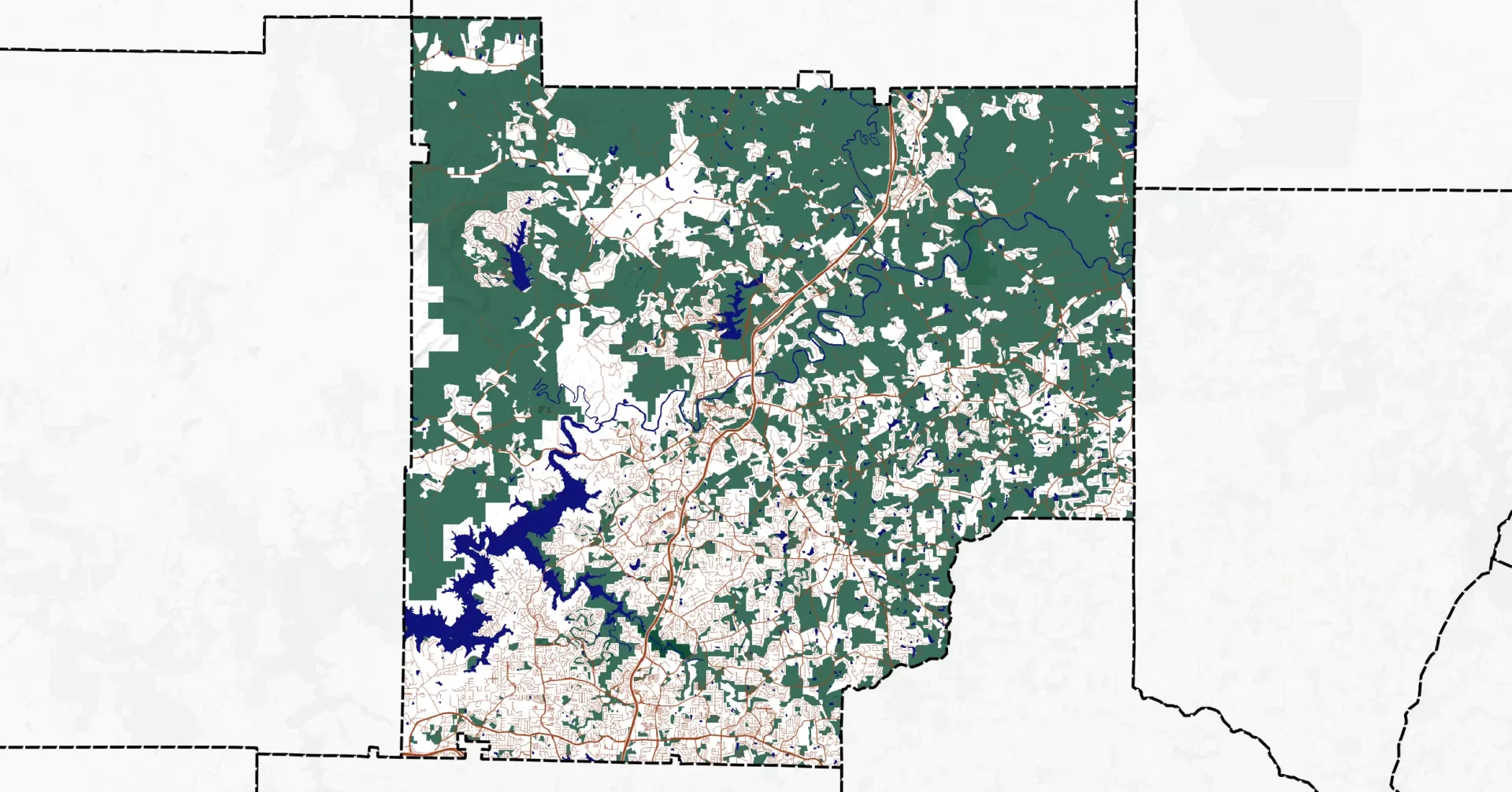
Median Household Income: $66,320
Historical Perspective: Cherokee County, established in 1831, was originally home to the Cherokee Nation before European settlement. The county’s history is marked by the removal of the Cherokee people on the Trail of Tears in the 1830s. For much of its early history, agriculture, including cotton and corn farming, was the primary source of economic activity. However, the county’s fortunes changed in the latter half of the 20th century.
Economic Development Today: Today, Cherokee County is a thriving suburban area with a median household income of $66,320. Its strategic location, quality schools, and investment in infrastructure have attracted a diverse range of industries, including technology, manufacturing, and healthcare. The county’s commitment to preserving its natural beauty, historical sites, and vibrant communities has made it an appealing destination for residents seeking economic success and a high quality of life.
Future Outlook: Cherokee County’s future is promising as it continues to focus on sustainable growth and community development. The county aims to maintain its reputation as a place where residents can achieve financial success while enjoying the beauty of North Georgia and a rich sense of history. With a blend of history and modernity, Cherokee County is poised for a prosperous future.
5. Columbia County

Median Household Income: $66,333
Historical Perspective: Columbia County, established in 1790, has a rich history tied to the early days of Georgia. Named after Christopher Columbus, the county’s economy was rooted in agriculture, with cotton farming as a major contributor to its prosperity. In the late 20th century, as the Augusta metropolitan area expanded, Columbia County experienced significant growth and development.
Economic Development Today: Today, Columbia County is a thriving community with a median household income of $66,333. Its strategic location near Augusta and investment in infrastructure have attracted a diverse range of industries, including healthcare, manufacturing, and defense. The county’s commitment to education, public services, and recreational opportunities has made it an appealing destination for residents seeking economic success and a high quality of life.
Future Outlook: Columbia County’s future looks promising as it continues to invest in sustainable development and community enhancement. The county aims to maintain its reputation as a place where residents can achieve financial success while enjoying the beauty of the Central Savannah River Area and a vibrant community life. With a blend of history and modernity, Columbia County is poised for a prosperous future.
4. Harris County
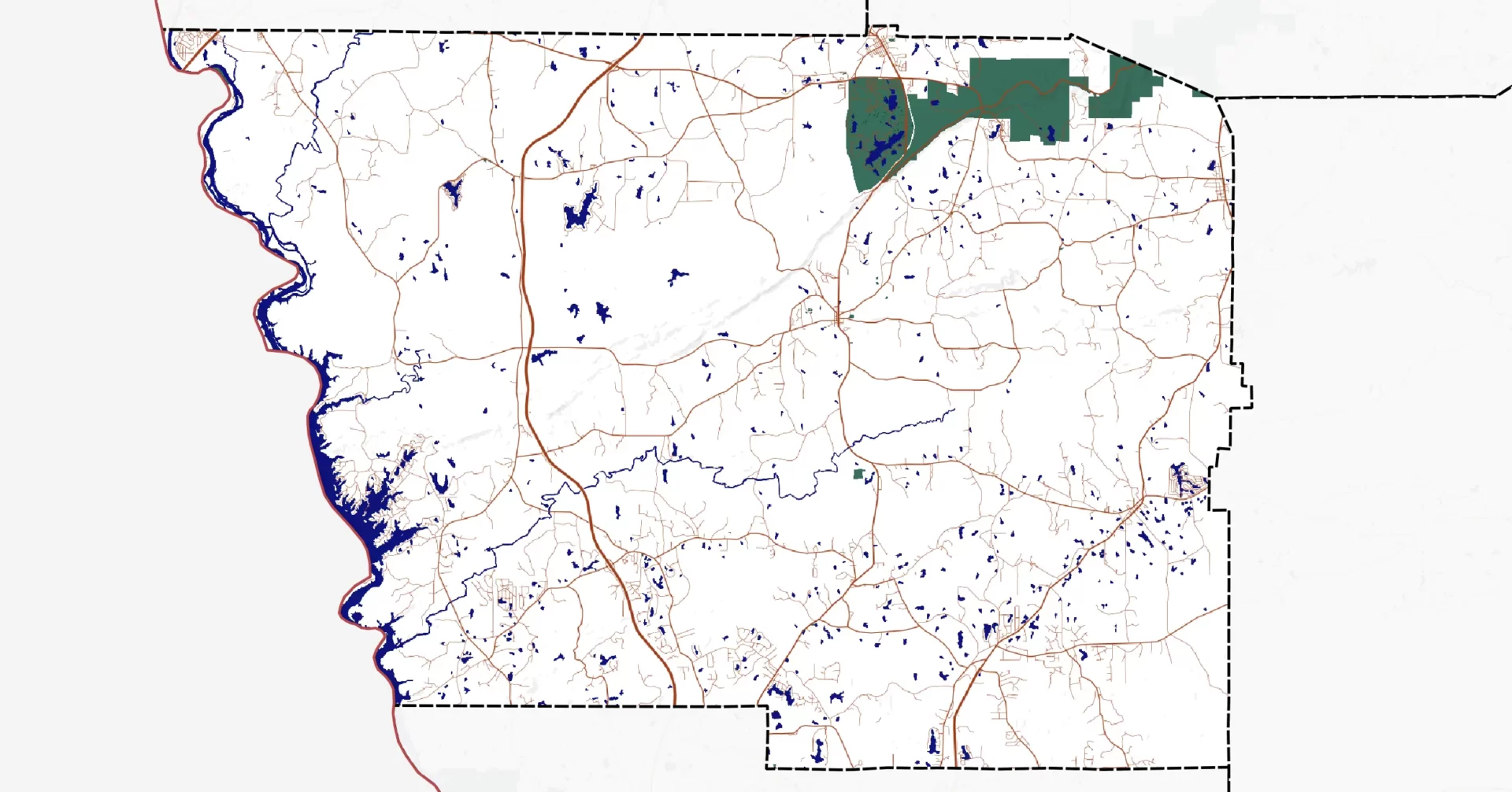
Median Household Income: $67,018
Historical Perspective: Harris County, established in 1827, was named after Charles Harris, a prominent figure in Georgia’s early history. Its early economy was based on agriculture, including cotton farming, which contributed significantly to its wealth. However, the county underwent a transformation in the latter half of the 20th century with the growth of Columbus and Fort Benning.
Economic Development Today: Today, Harris County is a thriving community with a median household income of $67,018. Its strategic location near Columbus and Fort Benning has contributed to the growth of industries such as healthcare, manufacturing, and logistics. The county’s commitment to education, public services, and recreational opportunities has made it an appealing destination for residents seeking economic success and a high quality of life.
Future Outlook: Harris County’s future holds promise as it continues to focus on sustainable growth and community development. The county aims to maintain its reputation as a place where residents can achieve financial success while enjoying the beauty of Georgia’s Piedmont region and a close-knit community. With a blend of history and modernity, Harris County is poised for a prosperous future.
3. Oconee County

Median Household Income: $74,352
Historical Perspective: Oconee County, established in 1875, has a unique history rooted in agriculture and education. It was named after the Oconee River, which flows through the area. Historically, the county was known for its farming, particularly cotton and corn. However, it gained prominence with the establishment of the University of Georgia, which brought educational and cultural enrichment.
Economic Development Today: Today, Oconee County is a thriving community with a median household income of $74,352. Its strategic location near Athens and investment in infrastructure have attracted a diverse range of industries, including technology, healthcare, and education. The county’s commitment to education and cultural preservation has made it an appealing destination for residents seeking both economic success and a rich quality of life.
Future Outlook: Oconee County’s future looks promising as it continues to invest in sustainable development and educational excellence. The county aims to maintain its reputation as a place where residents can achieve financial success while enjoying the beauty of Northeast Georgia and the intellectual vibrancy of Athens. With a blend of history and modernity, Oconee County is poised for a prosperous future.
2. Fayette County
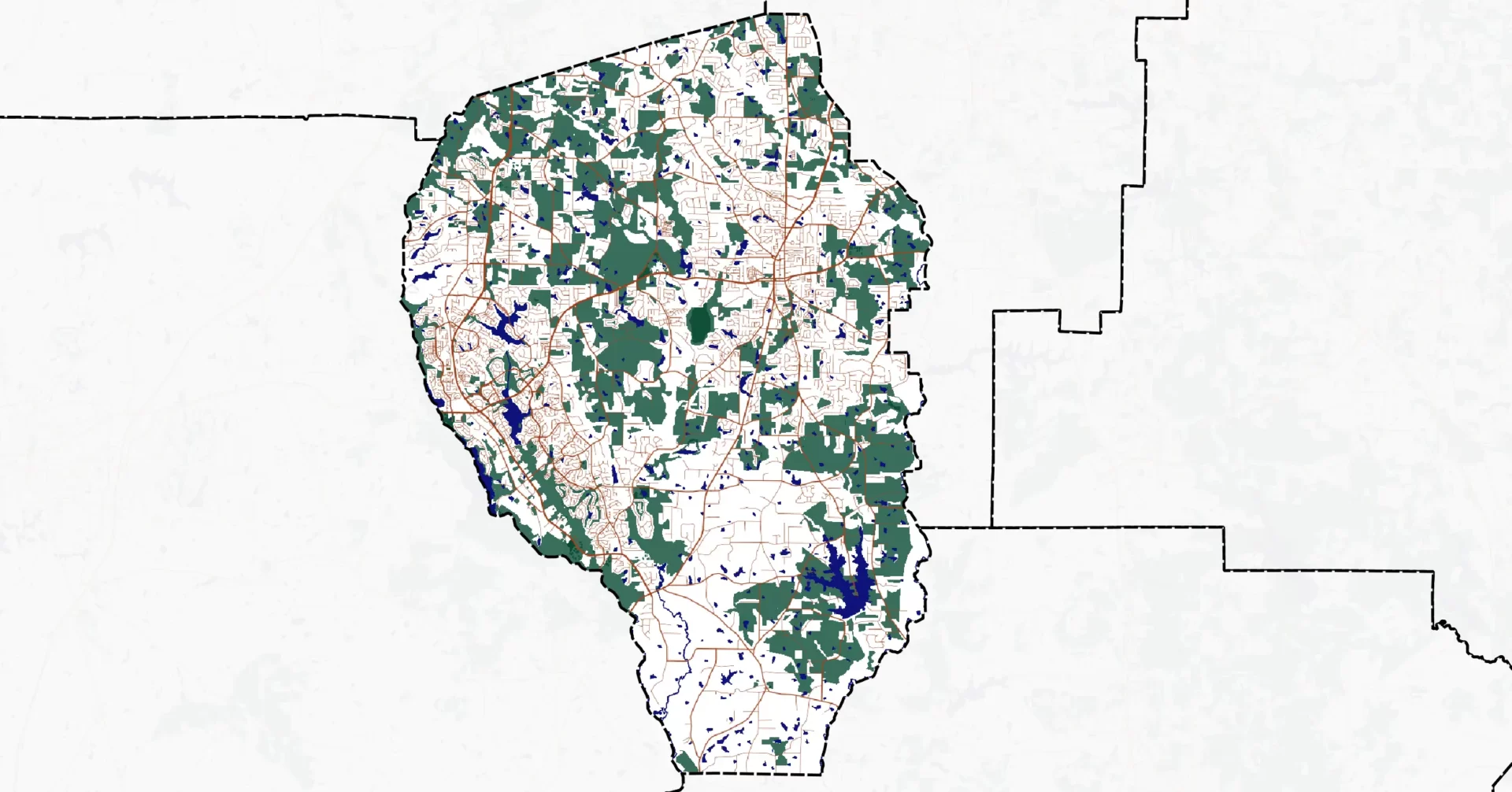
Median Household Income: $82,216
Historical Perspective: Fayette County, established in 1821, bears the name of the Marquis de Lafayette, a French general who played a key role in the American Revolutionary War. Its early economy was based on agriculture, particularly cotton farming. However, Fayette County’s transformation began in the late 20th century with the growth of the Atlanta metropolitan area.
Economic Development Today: Today, Fayette County is a thriving suburban community with a median household income of $82,216. Its strategic location south of Atlanta has made it a major economic hub, with a diverse range of industries, including technology, healthcare, and education contributing to its prosperity. The county’s commitment to education, public services, and recreational amenities has attracted residents seeking economic success and a high quality of life.
Future Outlook: Fayette County’s future appears bright as it continues to focus on sustainable development and community enhancement. The county aims to maintain its reputation as a place where residents can achieve financial success while enjoying the beauty of Georgia’s Piedmont region and a rich sense of community. With a blend of history and modernity, Fayette County is poised for a prosperous future.
1. Fulton County

Median Household Income: $87,605
Historical Perspective: Fulton County, established in 1853, was named after Robert Fulton, the inventor of the steamboat. Its early economy was centered around agriculture, trade, and transportation. However, the county’s fortunes began to change dramatically in the 20th century with the rapid urbanization of Atlanta.
Economic Development Today: Today, Fulton County is a thriving urban and suburban center with a median household income of $87,605. It is the economic and cultural heart of Georgia, with diverse industries, including finance, technology, healthcare, and entertainment, contributing to its economic prosperity. The county’s commitment to education, public services, and cultural amenities has made it an appealing destination for residents seeking economic success and a high quality of life.
Future Outlook: Fulton County’s future is exceptionally promising as it continues to adapt and grow as a major economic powerhouse. The county aims to maintain its reputation as a place where residents can achieve unparalleled financial success while enjoying the vibrant energy of Atlanta and a rich array of cultural experiences. With a blend of history and modernity, Fulton County is poised for an exceptionally prosperous future.
These counties’ histories and economic journeys showcase their diverse paths to prosperity, offering a glimpse into Georgia’s vibrant and dynamic landscape of success and growth.
Conclusion: Navigating the Path to Prosperity
| RICHEST COUNTIES IN GEORGIA | |
| COUNTY | MEDIAN HOUSEHOLD INCOME (2021) |
| Fulton | $87,605 |
| Fayette | $82,216 |
| Oconee | $74,352 |
| Harris | $67,018 |
| Columbia | $66,333 |
| Cherokee | $66,320 |
| Cobb | $65,522 |
| Henry | $63,923 |
| Bryan | $63,244 |
| Gwinnett | $63,219 |
| Paulding | $62,348 |
| Coweta | $61,550 |
| Lee | $59,811 |
| Effingham | $56,903 |
| Forsyth | $56,709 |
Source of this table: United States Census Bureau (USCB) (Data from Georgia)
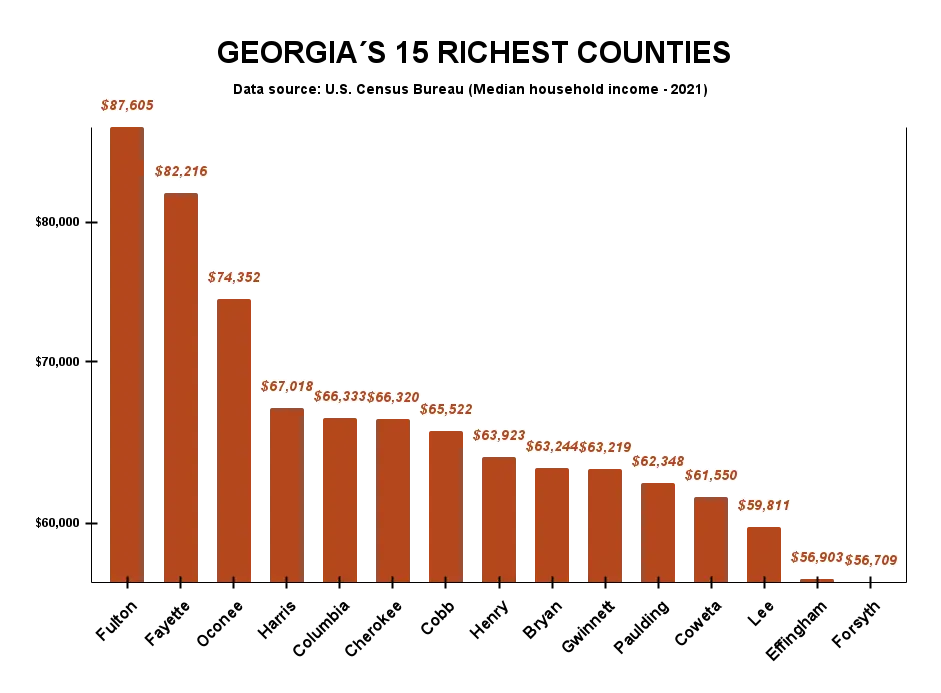
In our journey through Georgia’s wealthiest counties, we’ve traversed a landscape of history, economic development, and promise for the future. Each county’s story is unique, but they all share a common thread—a relentless pursuit of prosperity that has shaped them into the economic powerhouses they are today.
From their humble agrarian beginnings to their current status as vibrant suburban and urban centers, these counties have undergone remarkable transformations. They have adapted to changing times, embraced new industries, and strategically invested in infrastructure to attract businesses and residents seeking financial success and a high quality of life.
As we gaze toward the future, we see a landscape brimming with potential. These counties, with their diverse histories and thriving economies, are poised to continue their upward trajectory. By prioritizing sustainable development, education, and community enhancement, they are not only securing their financial prosperity but also preserving their cultural heritage, natural beauty, and strong sense of community.
In a state known for its Southern charm and economic vitality, Georgia’s wealthiest counties stand as beacons of opportunity and promise. They are living proof that with vision, determination, and a commitment to both the past and the future, prosperity can thrive in every corner of the Peach State.





